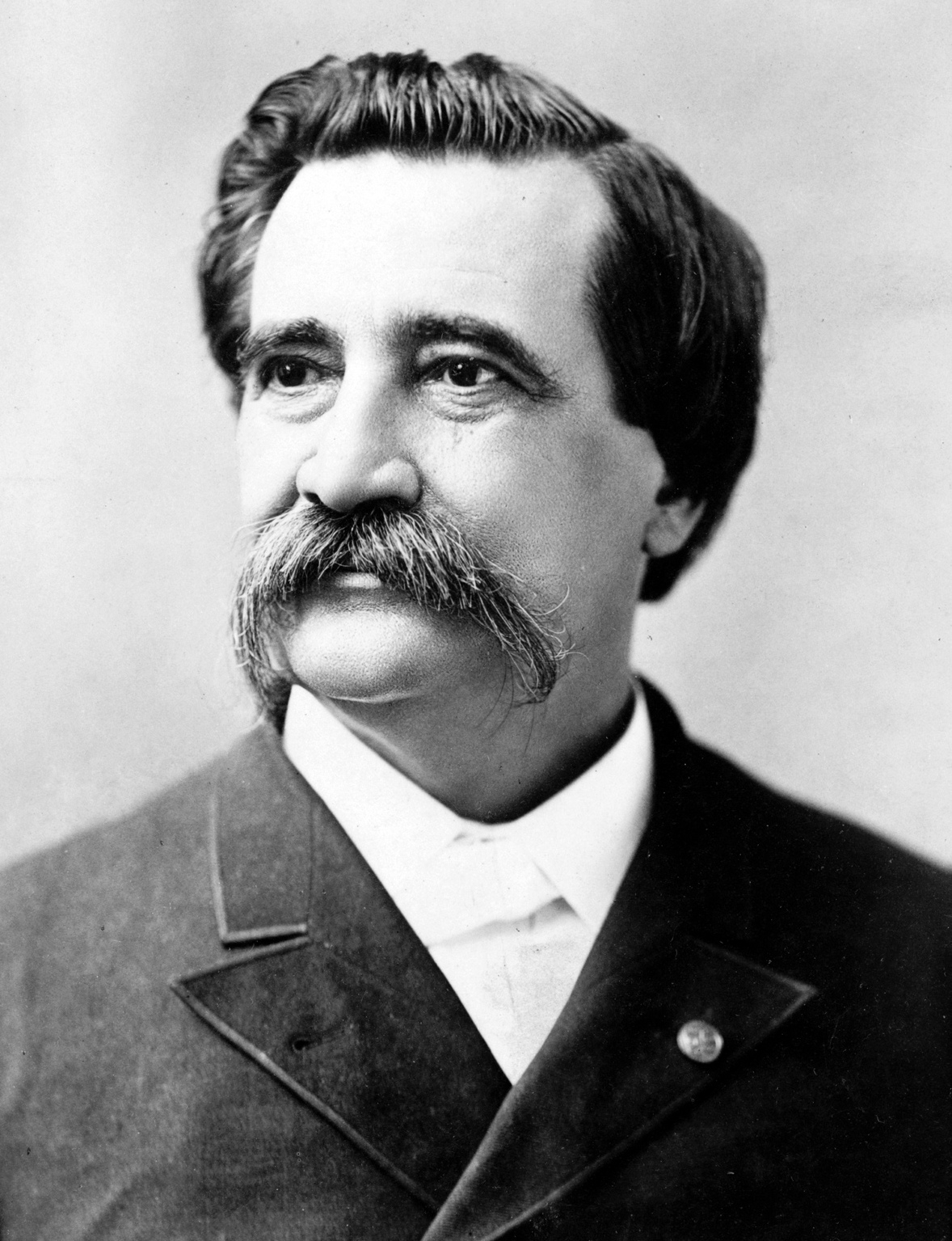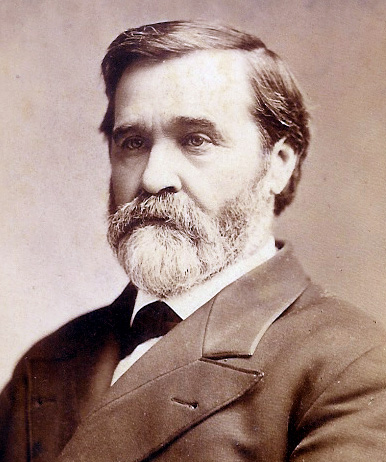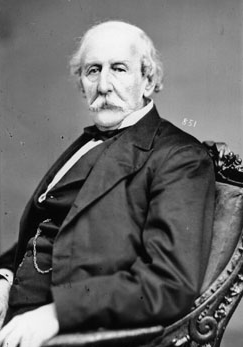United States Senate Election In Illinois, 1885 on:
[Wikipedia]
[Google]
[Amazon]
The 1885 United States Senate election in Illinois was held from February 18 to May 19, 1885. The contentious election was determined by a joint session of the
 On February 5, 1885, a Republican senatorial caucus was held in the Leland Hotel in
On February 5, 1885, a Republican senatorial caucus was held in the Leland Hotel in
 Without any nominating conventions, the Democratic party nominated their candidate during a legislative session on February 11. The deadline for officially naming a Democratic candidate was that day, though uncertainties prevailed about what time it was.
Without any nominating conventions, the Democratic party nominated their candidate during a legislative session on February 11. The deadline for officially naming a Democratic candidate was that day, though uncertainties prevailed about what time it was.
 On April 12, Democrat R. H. Shaw, of the Democratic-leaning 34th district, died. Republican William H. Weaver won the election the next month against Arthur Allen Leeper by 246 votes. This finally gave the Republicans a majority in the joint session. Republicans in Springfield celebrated when the telegram confirming the victory arrived. Democrats blamed Morrison for the loss of the legislature seat. On May 14, a joint session was held. After three sessions of voting, Senator James W. Duncan announced that the Democrats wished to withdraw Morrison as a candidate. However, no replacement was immediately named. The fourth ballot saw a scattering of Democratic votes among fourteen candidates, though Morrison maintained a majority. The fifth ballot saw the emergence of Judge
On April 12, Democrat R. H. Shaw, of the Democratic-leaning 34th district, died. Republican William H. Weaver won the election the next month against Arthur Allen Leeper by 246 votes. This finally gave the Republicans a majority in the joint session. Republicans in Springfield celebrated when the telegram confirming the victory arrived. Democrats blamed Morrison for the loss of the legislature seat. On May 14, a joint session was held. After three sessions of voting, Senator James W. Duncan announced that the Democrats wished to withdraw Morrison as a candidate. However, no replacement was immediately named. The fourth ballot saw a scattering of Democratic votes among fourteen candidates, though Morrison maintained a majority. The fifth ballot saw the emergence of Judge
Illinois General Assembly
The Illinois General Assembly is the legislature of the U.S. state of Illinois. It has two chambers, the Illinois House of Representatives and the Illinois Senate. The General Assembly was created by the first state constitution adopted in ...
. Incumbent Republican United States Senator
The United States Senate consists of 100 members, two from each of the 50 U.S. state, states. This list includes all senators serving in the 119th United States Congress.
Party affiliation
Independent Senators Angus King of Maine and Berni ...
John A. Logan, seeking a third term (second consecutive) in the United States Senate
The United States Senate is a chamber of the Bicameralism, bicameral United States Congress; it is the upper house, with the United States House of Representatives, U.S. House of Representatives being the lower house. Together, the Senate and ...
, was unanimously nominated by a Republican caucus. However, some assemblymen expressed concern about the candidate and abstained from supporting him.
Logan initially faced off against Democrat
Democrat, Democrats, or Democratic may refer to:
Politics
*A proponent of democracy, or democratic government; a form of government involving rule by the people.
*A member of a Democratic Party:
**Democratic Party (Cyprus) (DCY)
**Democratic Part ...
William Ralls Morrison
William Ralls Morrison (September 14, 1824 – September 29, 1909) was an American politician who served as a U.S. Representative from Illinois.
Early life and career
Born on a farm at Prairie du Long, near the present town of Waterloo, Ill ...
, who was nominated during a legislative session. When the election began on February 18, the assembly combined for 102 Republicans and a coalition of 102 supporting the Democrats, thus producing a stalemate. For the next two months, elections were held to no avail during joint sessions. On April 12, a Democratic representative died and a Republican candidate won the special election to replace him. This angered Democrats, who tired of Morrison's lack of appeal and nominated Judge Lambert Tree
Lambert Tree (November 29, 1832 – October 9, 1910) was a United States state court judge, ambassador, and patron of the arts.
The Tree family of America and early life
The Tree family of America were amongst the first colonists from Engla ...
in his place. After three months, the last Republican holdout consented to follow the rest of his party, and Logan was elected with 103 of the 204 votes.
Background
In 1884, Logan was the Republican nominee forVice President of the United States
The vice president of the United States (VPOTUS) is the second-highest ranking office in the Executive branch of the United States government, executive branch of the U.S. federal government, after the president of the United States, and ranks f ...
. After the GOP ticket lost the general election to Democrats Grover Cleveland
Stephen Grover Cleveland (March 18, 1837June 24, 1908) was the 22nd and 24th president of the United States, serving from 1885 to 1889 and from 1893 to 1897. He was the first U.S. president to serve nonconsecutive terms and the first Hist ...
and Thomas A. Hendricks
Thomas Andrews Hendricks (September 7, 1819 – November 25, 1885) was an American politician and lawyer from Indiana who served as the 16th governor of Indiana from 1873 to 1877 and the 21st vice president of the United States from March until ...
, Logan blamed disloyalty by supporters of President Chester A. Arthur
Chester Alan Arthur (October 5, 1829 – November 18, 1886) was the 21st president of the United States, serving from 1881 to 1885. He was a Republican from New York who previously served as the 20th vice president under President James A. ...
's bid for the Republican nomination. Logan obstructed Arthur's nomination of ''Chicago Inter-Ocean
The ''Chicago Inter Ocean'', also known as the ''Chicago Inter-Ocean'', is the name used for most of its history by a newspaper published in Chicago, Illinois, from 1865 until 1914. Its editors included Charles A. Dana and Byron Andrews.
Histor ...
'' journalist William Eleroy Curtis to be Secretary of the Latin American Trade Commission, claiming that Curtis had made “damaging disclosures… to the Democratic National Committee.” Curtis threatened to mobilize his press allies against Logan's re-election, and the controversy eventually dissipated.
Early voting
Republican caucus
 On February 5, 1885, a Republican senatorial caucus was held in the Leland Hotel in
On February 5, 1885, a Republican senatorial caucus was held in the Leland Hotel in Springfield, Illinois
Springfield is the List of capitals in the United States, capital city of the U.S. state of Illinois. Its population was 114,394 at the 2020 United States census, which makes it the state's List of cities in Illinois, seventh-most populous cit ...
. The meeting sought to determine the party's candidate for the US Senate seat currently held by Republican John A. Logan. President of the Illinois Bar Association Melville Fuller
Melville Weston Fuller (February 11, 1833 – July 4, 1910) was an American politician, attorney, and jurist who served as the eighth chief justice of the United States from 1888 until his death in 1910. Staunch conservatism marked his t ...
presided over the meeting and US Representative William E. Mason was elected chairman. Daniel Hogan and Henry Sherman Boutell were named secretaries.
State senator Lorenzo D. Whiting
Lorenzo Dow Whiting (November 17, 1819 – October 10, 1889) was an American politician from New York. Born to an early American family, Whiting worked as a store clerk before moving to Illinois in 1838 to study patent law. After a seven-year retu ...
made the first speech supporting Logan as the Republican candidate. State representatives Orrin P. Cooley and Charles E. Scharlau and state senators Martin B. Thompson and William S. Morris seconded the nomination. Other assemblymen joined in and Logan was easily nominated for his seat. Logan gave a speech, noting that Republicans held 102 of 204 seats against a coalition of other parties. This speech was followed by ones by former Governor of Illinois
The governor of Illinois is the head of government of Illinois
Illinois ( ) is a U.S. state, state in the Midwestern United States, Midwestern United States. It borders on Lake Michigan to its northeast, the Mississippi River to its we ...
John Marshall Hamilton and district attorney James A. Connolly
James Austin Connolly (March 8, 1843 – December 15, 1914) was an American lawyer, Civil War veteran, and politician who served two terms as a U.S. Representative from Illinois from 1895 to 1899.
Biography
James A. Connolly was born in Newark ...
.
Illinois Democrats were relieved to hear that there were eight absences among the ranks of the Republicans at their nominating convention, although five expressed support for Logan within the day. Thomas C. MacMillan did not attend and did not explicitly support Logan, but stated that he would "in no event" vote for a Democrat. W. H. Ruger expressed hesitation towards Logan but admitted he would probably vote for him. Eugene A. Sittig did not attend the meeting and made no statement.
Democratic vote
 Without any nominating conventions, the Democratic party nominated their candidate during a legislative session on February 11. The deadline for officially naming a Democratic candidate was that day, though uncertainties prevailed about what time it was.
Without any nominating conventions, the Democratic party nominated their candidate during a legislative session on February 11. The deadline for officially naming a Democratic candidate was that day, though uncertainties prevailed about what time it was. Speaker of the Illinois House of Representatives
The Speaker of the Illinois House of Representatives is seventh (behind the Lieutenant Governor, Attorney General, Secretary of State, Comptroller, Treasurer, and President of the Senate, respectively) in the line of succession to the office of ...
Elijah M. Haines, nominally an independent, presided over the session. The motion to name a Democratic candidate was proposed by E. R. E. Kimbrough and was supported by fifty-six other Democrats. James M. Dill nominated William Ralls Morrison
William Ralls Morrison (September 14, 1824 – September 29, 1909) was an American politician who served as a U.S. Representative from Illinois.
Early life and career
Born on a farm at Prairie du Long, near the present town of Waterloo, Ill ...
as the Democratic candidate. In protest, Republican members of the assembly left the hall. The remaining members of the house then cast a vote. Morrison received forty-four votes, Haines received one vote, and Haines voted for former representative Richard Bishop. Edward L. McDonald presented the resolution to the senate; most Democratic members of that body then entered the chamber. Henry Seiter was declared president ''pro tempore'' in the absence of any Republicans. Erastus N. Rinehart made the nominating speech on behalf of Morrison. A joint vote was then held in both houses. All senators and most of the representatives voted for Morrison, who was then officially nominated. Six Democratic representatives refused to vote and Haines again received one vote.
Stalemate
On February 13, a motion was held during a state senate session to proceed with the ballot, but it failed by one vote. Nonetheless, Whiting again spoke on behalf of Logan. The first ballot in the General Assembly was held on February 18. Logan received 101 votes, Morrison received 94, Haines received four, and three others received one vote apiece. Three ballots were held the next day, with Logan losing one vote to a third-party candidate. The assembly aimed to hold an election on February 26, but the sudden death of Republican representative R. E. Logan (no relation) prompted a stall in the vote. Republican Dwight S. Spafford replaced him, continuing the stalemate. A joint ballot was held on March 12 and each main candidate received 99 votes; four voters cast a vote for other candidates. Although Logan held a small lead in some of the ballots, the final ballot was 100 to 100 and the session adjourned. The Republicans held a vote on March 26. At first, Logan received 100 votes, but on a second ballot, Sittig supported Logan; MacMillan was the lone abstaining vote. Democratic senator Frank M. Bridges died in late March and was replaced with Democrat Robert H. Davis. Democrats began to explore other candidates, including General John C. Black and US Representative Richard W. Townshend. On April 12, Democrat R. H. Shaw, of the Democratic-leaning 34th district, died. Republican William H. Weaver won the election the next month against Arthur Allen Leeper by 246 votes. This finally gave the Republicans a majority in the joint session. Republicans in Springfield celebrated when the telegram confirming the victory arrived. Democrats blamed Morrison for the loss of the legislature seat. On May 14, a joint session was held. After three sessions of voting, Senator James W. Duncan announced that the Democrats wished to withdraw Morrison as a candidate. However, no replacement was immediately named. The fourth ballot saw a scattering of Democratic votes among fourteen candidates, though Morrison maintained a majority. The fifth ballot saw the emergence of Judge
On April 12, Democrat R. H. Shaw, of the Democratic-leaning 34th district, died. Republican William H. Weaver won the election the next month against Arthur Allen Leeper by 246 votes. This finally gave the Republicans a majority in the joint session. Republicans in Springfield celebrated when the telegram confirming the victory arrived. Democrats blamed Morrison for the loss of the legislature seat. On May 14, a joint session was held. After three sessions of voting, Senator James W. Duncan announced that the Democrats wished to withdraw Morrison as a candidate. However, no replacement was immediately named. The fourth ballot saw a scattering of Democratic votes among fourteen candidates, though Morrison maintained a majority. The fifth ballot saw the emergence of Judge Lambert Tree
Lambert Tree (November 29, 1832 – October 9, 1910) was a United States state court judge, ambassador, and patron of the arts.
The Tree family of America and early life
The Tree family of America were amongst the first colonists from Engla ...
with 35 of the 96 Democratic votes. Tree received 89 votes on the sixth and final ballot and was named the new candidate.
Election
The session of May 19 saw an audience from around the state convene on Springfield to watch the joint legislative session. A roll call was first held in the senate. Senators had the right to vote at any time before the final reveal of the ballot, so no Democrat officially voted during the roll call. When the roll reached a key swing-vote in Ruger, Democrats were dismayed that he enthusiastically cast his vote for Logan. When the roll call moved on to the house, Democrats again kept silence as Republicans voted in turn for Logan. Another swing vote, MacMillan, supported Logan. The last hope for the Democrats was Sittig. When Sittig's name was called, he did not vote. This resulted in a round of applause from Democrats. However, after the roll call was finished, Sittig took the opportunity to speak. Sittig criticized Logan and the rest of the Republican caucus, but finally consented to vote for Logan. The assembly erupted in cheers for Logan, who finally had 103 votes. With a Republican victory close at hand, Democrats no longer passed the opportunity to vote and started to cast votes for Tree. In a last-ditch effort, some Democrats threw their support behind Republican Charles B. Farwell, hoping to splinter the Republican vote. For the next hour, Democrats petitioned Speaker Haines to change their vote from Tree to Farwell. After Democratic senators cast their votes, Farwell only had the support of 96 Democrats and had not elicited support from any Republicans. With the results all but secure, Republicans agreed that a second roll call of Democrats should be held. Democratic senators cast their votes for Tree. Tree received most of the Democratic votes, with two votes going to Black, and one each to Morrison, to Chicagoan John R. Hoxie, and to Judge Charles J. Schofield. Haines held a last call, but no one changed their votes. Logan was elected to the US Senate with 103 votes to Tree's 96. Republicans cheered for the next ten minutes, then Logan gave an accepting speech and the meeting was adjourned. , - , -bgcolor="#EEEEEE" , colspan="3" align="right" , Totals , align="right" , 204 , align="right" , 100.00%References
{{Illinois electionsUnited States Senate
The United States Senate is a chamber of the Bicameralism, bicameral United States Congress; it is the upper house, with the United States House of Representatives, U.S. House of Representatives being the lower house. Together, the Senate and ...
Illinois
Illinois ( ) is a U.S. state, state in the Midwestern United States, Midwestern United States. It borders on Lake Michigan to its northeast, the Mississippi River to its west, and the Wabash River, Wabash and Ohio River, Ohio rivers to its ...
1885
Events
January
* January 3– 4 – Sino-French War – Battle of Núi Bop: French troops under General Oscar de Négrier defeat a numerically superior Qing Chinese force, in northern Vietnam.
* January 17 – Mahdist ...